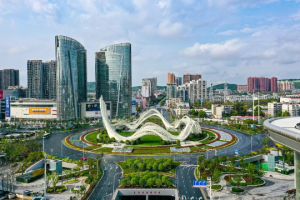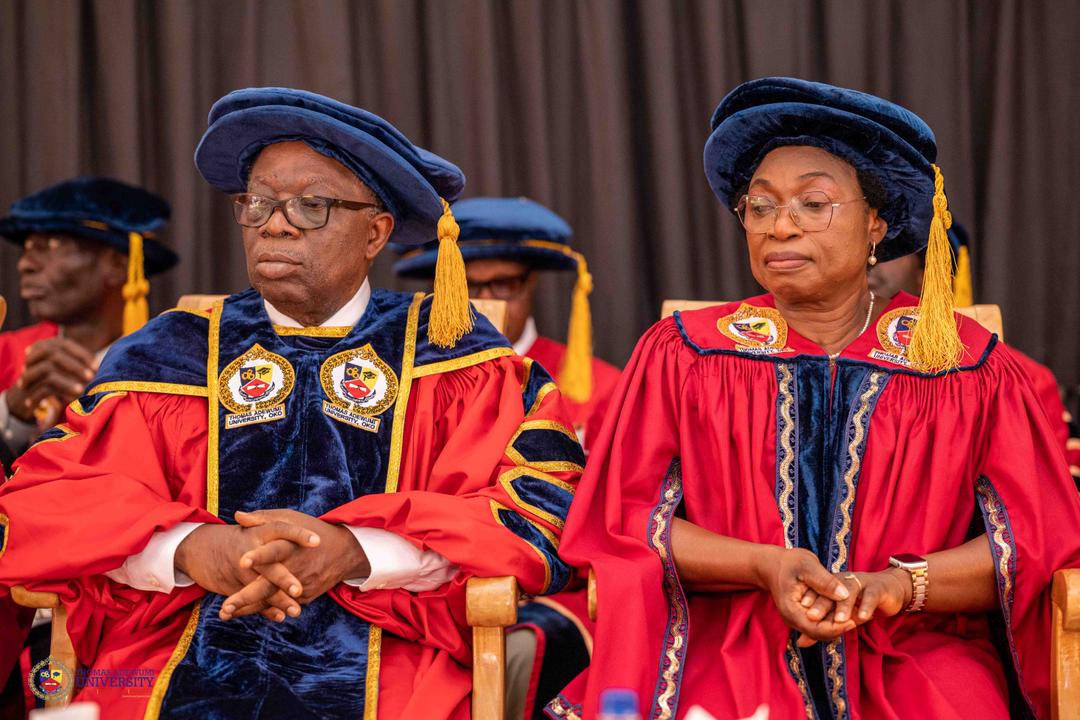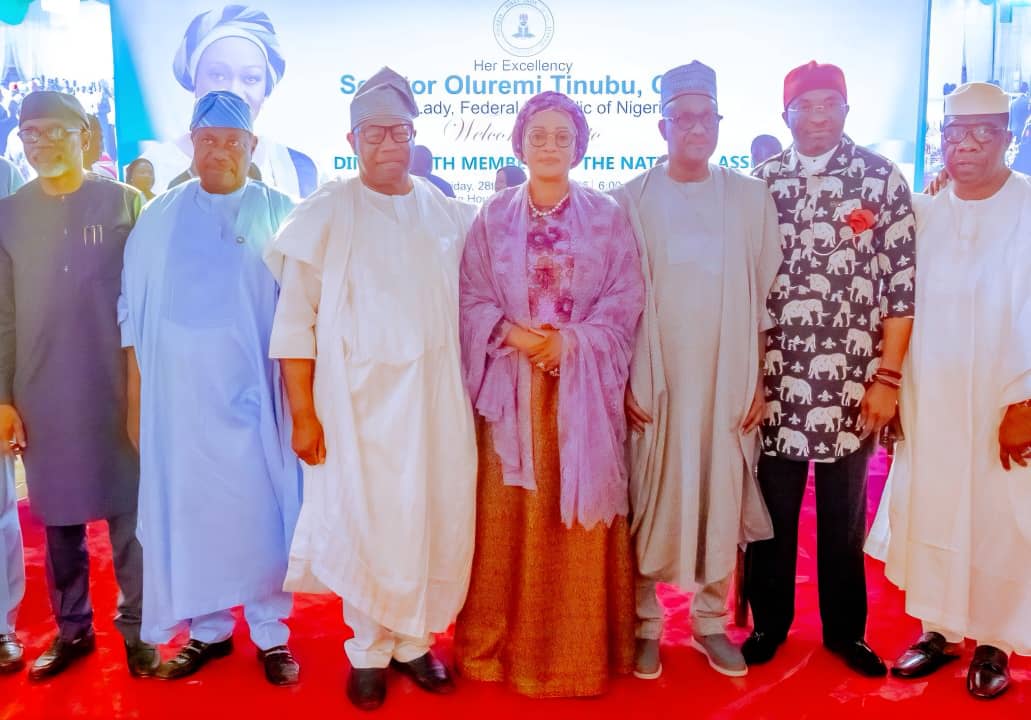Uncategorized
Digital industrial clusters prosper in China

By Wang Zheng, People’s Daily
The rapid development of the digital economy over the recent years in China has led to a tide of the construction of digital industrial clusters.
A batch of digital industrial clusters with international competitiveness has taken shape and grown strong across China, injecting fresh impetus into the high-quality development of the Chinese economy.
Digital industrial clusters, led by new development philosophy, include enterprises and relevant organizations driven by digital factors and engaged in digital product manufacturing, digital services, and digital technology application. They have strong core competitiveness.
According to China’s 14th Five-Year Plan (2021-2025) on the development of the digital economy, the country aims to raise the proportion of the added value of core digital economy industries in its GDP to 10 percent in 2025, up from 7.8 percent in 2020.
The China Center for Information Industry Development (CCID) said over 60 percent of China’s 25 advanced manufacturing clusters are engaged in the digital economy. The prospering development of the digital economy is driving the upgrade of industrial clusters.
China Speech Valley, an industrial base focusing on speech recognition technologies in Hefei, east China’s Anhui province, reported revenue of 137.8 billion yuan ($19.71 billion) from its main businesses last year. Led by leading artificial intelligence and speech technology company iFLYTEK, the industrial base is home to 1,423 enterprises. The annual average growths in its output value and number of enterprises have both exceeded 30 percent over the past five years.
A digital security industrial cluster in Hangzhou, east China’s Zhejiang province, is home to leading Chinese video surveillance product and solution provider Dahua Technology, top-notch manufacturer and supplier of video surveillance equipment Hikvision, as well as over 4,300 other innovative enterprises engaged in the industry. The revenue of core businesses of the cluster reached 272.08 billion yuan ($38.9 billion) last year, up 17.2 percent year on year. It has the world’s largest two producers of digital video recorders and cameras, with a market share of over 50 percent.
Represented by global leading provider of optical products Yangtze Optical Fibre and Cable Joint Stock Limited Company and laser technology developer Huagong Tech, the Optics Valley in Wuhan, central China’s Hubei province, has received total investment exceeding 200 billion yuan during the past three years and owns more than 15,000 optoelectronic enterprises. The industrial cluster has witnessed a series of breakthroughs, such as the making of the world’s first 128-layer 3D NAND flash memory chip and China’s first 400G silicon photonics optical module.
Platform-based synergetic online development and production is one of the features of digital industrial clusters. For instance, Chinese tech firm Xiaomi, establishing over 100 enterprises in its ecological chain in the Beijing-Tianjin-Hebei region, Yangtze River Delta and Pearl River Delta, has created more than 100 hot-selling products. So far, the Chinese company has gathered over 4,000 online development teams on its platform.
The new model of work division is another feature of digital industrial clusters. Gao Yingmai, director of the Digital Economy Strategy Research Office of CCID, told People’s Daily that different from the models of one-to-one division adopted by traditional industrial clusters, digital industrial clusters use platforms to connect businesses.
Data alignment and interaction as well as artificial intelligence-enabled analysis make industrial collaboration more precise and efficient, Gao explained.
For instance, these platforms could detect shortages of key spare parts and then seek suppliers, and could also predict fluctuations in the market and thus ensure a reasonable inventory and timely production, Gao noted.
Digital industrial clusters can achieve synergy in R&D, orders, production, quality, inventory and services, said Fan Qiuci, an expert with the AliResearch, a research arm of Alibaba Group. Fan said the clusters can digitalize and align various systems for a closed synergy loop, so as to stabilize and strengthen industrial and supply chains,
An official with the Ministry of Industry and Information Technology said that China will strengthen digital industrialization, industrial digitalization and its data-to-value capability, so as to build digital industrial clusters with international competitiveness in different fields in a phased manner.
According to the official, the country will accelerate the development of industrial clusters, with market potential and dominated by innovative players. China will also build a development pattern led by major enterprises, followed by small- and medium-sized enterprises and constantly joined by innovative companies, to continuously integrate the digital economy with the real economy and traditional industries.
Besides, China will also speed up its efforts to build a national big data center and actively explore the new models of data flow and transaction, to fully turn digital dividends into development potential, the official added.
Uncategorized
TAU reaffirms commitment to globally competitive learning

- As 16 graduands make First Class
Stephen Olufemi Oni, Ilorin
The Thomas Adewumi University (TAU), Oko-Irese, in the Irepodun local government area of Kwara State, has reaffirmed its commitment to strengthening quality education, innovation, and globally competitive learning.

Speaking at the institution’s 2nd Convocation ceremony in Oko-Irese, the Vice Chancellor of the University, Professor Francisca Onaolapo Oladipo, said TAU is living up to its ranking as the fastest growing institution in Science, Technology, Engineering, Medicine, and Innovation (STEM-i) ecosystem by surpassing more than 100 percent in its number of graduating students at the second convocation.
She said: “TAU emerged on April 8, 2021, as Nigeria’s fastest-growing Science, Technology, Engineering, Medicine and Innovations (STEM-i) ecosystem. Today, we rank 1st among the 20 private universities that were licensed in
2021, 4th among the 14 Universities in Kwara State, 5th among Nigeria’s over 170 private Universities and 50th nationally, an impressive rise reflecting our unwavering commitment to excellence.
”What a Moment of Extraordinary Significance today, we stand at a crossroads far more significant than words can adequately capture. Exactly one year ago, we gathered at this very Auditorium to celebrate our inaugural Convocation, a ceremony that marked the graduation of 26 pioneering students who dared to believe in a vision when others saw only impossibility. Those 26 trailblazers proved that Thomas Adewumi University was not just a dream, but a reality rooted in excellence. Today, as we honour 63 outstanding graduates, we witness something far more profound than numerical growth.
“This 142% increase in our graduating class is not merely a statistic to be recorded in annual reports, it is a declaration that Thomas Adewumi University has transcended the realm of promise and entered the domain of proof.
“We have moved from potential to performance, from aspiration to achievement, from vision to velocity.
This year, 63 graduands from 4 Faculties and 11 academic programmes are being conferred. It is noteworthy that we have 16 First Class graduates, 40 in Second Class Upper Division, and 7 in Second Class Lower Division. These results reflect the quality of training and mentorship provided at Thomas Adewumi University, and we are proud to contribute these innovators to both the Nigerian and global workforce, confident that they will make a meaningful
impact.
”Preparing Globally Competitive Graduates, these 63 graduands are not merely degree holders, they are comprehensively prepared global professionals equipped with exceptional advantages that set them apart from their peers nationwide. Through our international partnerships, these graduates have obtained additional microcredentials from MIT, Harvard, Stanford, Columbia, Berkeley, and Yale, world-class certifications from Alison, UK, RUDN professional University, Russia, World Bank’s Saylor Academy, Google, ICAN, and the Global Partnership for Sustainable Development initiatives in Data Science and Artificial Intelligence.
“Our Coursera collaboration provided them with additional industry certifications, while partnerships with Microsoft, IBM SkillsBuild, and MIT OpenCourseWare through our Global Campus initiative democratize access to cutting-edge knowledge. They are thus fully equipped to embark on meaningful and innovative careers in today’s technology-driven world.”
Earlier in his Convocation Lecture, titled “Crowdfunding Opportunities forstartups: Equiping Nigerian graduates for a sustainable future”, Dr. Bayo Williams Olugbemi charged the graduads on the mindset of job creation, saying “as a graduate, your future is not defined by what Nigeria gives you, but by what you create. The idea of crowdfunding is the idea of hope. It is proof that when people come together, ideas once impossible become achievable.
“I urge you not to think only about searching for jobs. Instead, think about creating value, and if capital is a barrier, remember: “The crowd can be your first investor.”
In his goodwill message, the Executive Secretary of the National University Commission, Professor Abdullahi Ribadu, represented by Esther I. Eyo, Esq commended the resilience of TAU management said “NUC acknowledges TAU sustained progress in advancing quality teaching, impactful research, innovation, and community engagement, all of which align with our national aspiration for a globally competitive and knowledge-driven university system.
“It would interest you to know that, in the accreditation exercise conducted in 2023, Thomas Adewumi University achieved a 100% Full Accreditation status across all programmes assessed a laudable feat that reflects the University’s strong commitment to maintaining high academic standards.”
Also speaking, the Founder/Chancellor of the institution, Dr. (Engr) Johnson Adewumi, urged the graduands to be good ambassadors of the University, adding: “Remember that your degree is not an end but a beginning, go forth with courage, humility, and a sense of responsibility. Strive to illuminate whatever space you occupy with the light of integrity, excellence and service.”
Highlight of the event was the conferment of an honorary doctorate degree on two distinguished personalities; Engr Oluseyi Afolabi and Pastor Oladokun Olatunde.
End
Uncategorized
photo

L-r Speaker, House of Representatives, Tajudeen Abbas; President of the Senate, Godswill Akpabio and Nigeria’s First Lady, Senator Oluremi Tinubu, during the dinner for members of the National Assembly by the First Lady yesterday. Photo: Senate President’s Office.
Uncategorized
JUST IN: Even Tinubu moves with too many police escorts – Senator Ndume

By Hassan Taiye
Senator Ali Ndume has criticised what he described as the excessive use of security convoys by top government officials, including President Bola Tinubu, warning that the practice leaves ordinary citizens exposed and vulnerable.
Speaking on Politics Today on Channels Television on Thursday, Ndume said many public office holders move with security details that are unnecessarily large, even when their positions do not warrant such heavy protection.
He recalled visiting the residence of a colleague and finding “more than 10 policemen” attached to him, despite the lawmaker being junior to him in the National Assembly.
Ndume further argued that the presidential convoy itself is excessively large, stressing that security efforts should be focused on protecting the overall environment rather than individual personalities.
He said: “I went to one of my colleagues’ house for dinner. And I saw more than 10 policemen. He is even my junior in the National Assembly. Some of them, if you see them coming, you will pull back thinking that maybe it’s the President or the Vice President that is coming.
“
You can see even the president, the convoy that the president goes about with is too much. Secure the place and when the president goes, you withdraw. Secure Abuja and the president can even drive out, you know, himself.
But when you secure personalities, and this is what is happening in Nigeria, then others, common people, as we call them, become vulnerable, and we don’t care. So if you secure Abuja, then you can drive at night. And let me tell you, this is what is happening in most countries”.
The lawmaker’s comments come just days after President Tinubu ordered the withdrawal of police officers from VIP escort and guard duties.
In a statement, the Special Adviser to the President on Information and Strategy, Bayo Onanuga, said the directive was aimed at redeploying police manpower to core law enforcement responsibilities.
-

 Uncategorized5 years ago
Uncategorized5 years agoFG, states urged to harness flooding for ranching, others with technology – Agbaje
-

 Headlines10 years ago
Headlines10 years agoBreaking: EFCC seals Borno House of Assembly, as Hon members take to their heels
-

 News11 years ago
News11 years agoNigeria Security Operatives Stage Manhunt For Homosexual Perpetrator
-

 News9 years ago
News9 years agoHow 21-year-old Girl fled community over accusation of lesbianism
-

 News10 years ago
News10 years agoYobe Gov Moves Against Deputy
-

 Opinion7 years ago
Opinion7 years ago7 signs she has friend zoned you
-
Technology4 years ago
Online job placement company headhunts women
-

 Headlines10 years ago
Headlines10 years agoBorno Dep Gov Abducts Another Church Leader





